I have to admit, on the surface, Kogonada’s Columbus is not the type of movie I normally gravitate to. It’s a bit too quiet (I mean, the score is by some band called Hammock), a bit too measured (you can probably count the number of times the camera moves on one hand) than the films that I normally find myself treasuring. This is more a matter of aesthetic taste and an evaluation of what I find generally entertaining than anything else. But beneath the surface of what could easily be a flat, dull, precious little indie film is instead a fascinating story of human yearning, with a well-thought-out eye toward detail.
It’s the kind of movie I suspect will be more rewarding in subsequent views in order to better understand its motifs. The film is well-thought-out in this respect, as most of Kogonada’s film is based on architecture — not just visually, but almost spiritually, too. This is in spite of having a plot that’s almost too simple. After his architect father falls ill, Jin (John Cho) heads to Columbus, Ind., to basically wait for his death. There, he meets Casey (Haley Lu Richardson, Split), a young woman stuck in Columbus with her troubled mother and who carries a deep, almost obsessive fascination with architecture.
What keeps the film from devolving into a morass of cliched mommy and daddy issues is the ambiguity that surrounds the characters. Not to say that those mommy and daddy issues aren’t there, but they’re presented in much more complicated and human terms, while also being the tether of understanding between the two characters, despite living different lives and being different ages. In a lot of ways, the film centers on uncertainty and the confusing nature of just living. Jin and Casey circle around being romantic interests, while Casey can’t decide if she wants to leave Columbus to study architecture or stay and take care of her mother, and Jin’s father teeters between life and death.
Topping it off is Kogonada and cinematographer Elisha Christian’s compositions. Again, the camera remains pretty static, but instead of freneticism, there’s a genuine care put into what feels like almost every scene. Much of Columbus revolves around architecture and continually returns to interesting structures, but also the way the actors interact with their surroundings is wonderfully thought-out. One scene involving Jin and his stepmother (Parker Posey) in a hotel room is all structured around cleverly placed mirrors. It’s such a simple, unfussy, yet clever act of creativity that I can’t stop thinking about it. Finding this kind of attention to detail feels so rare these days, and yet here it is in this quiet, unassuming little surprise of a movie. Not Rated. Now Playing at Grail Moviehouse.

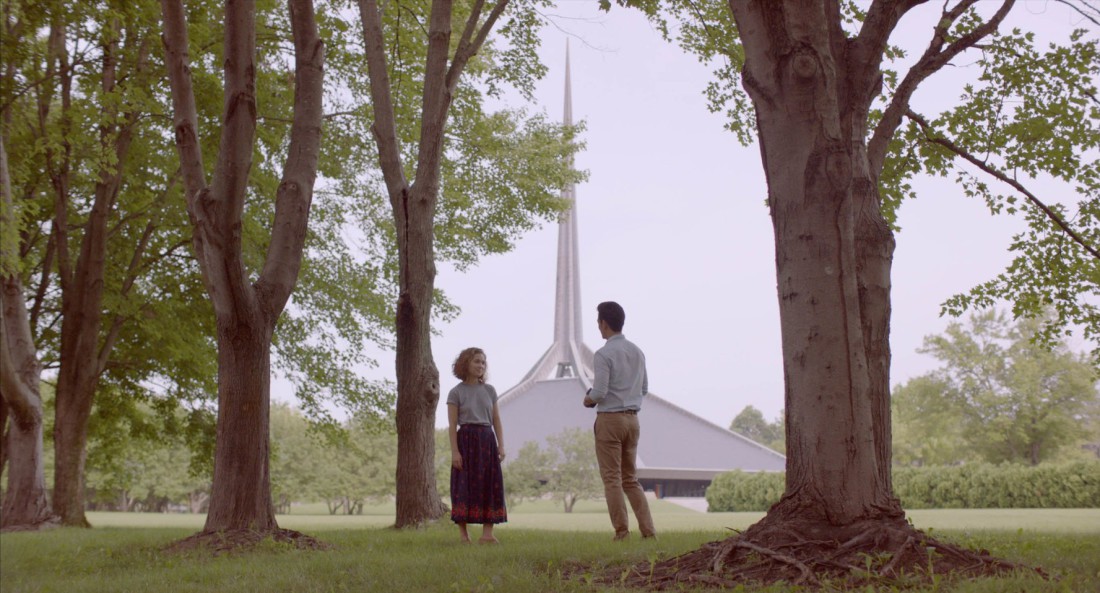
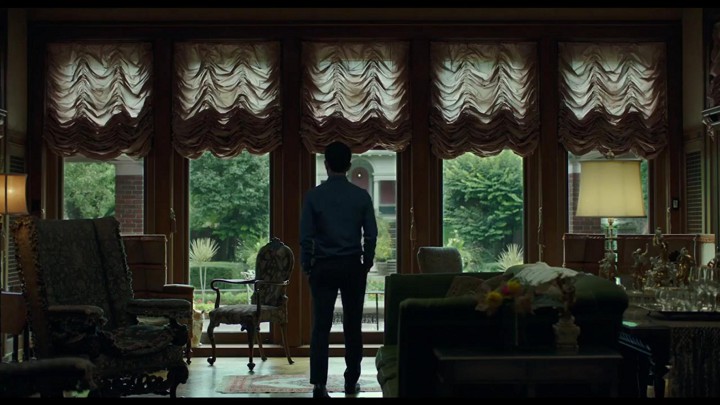
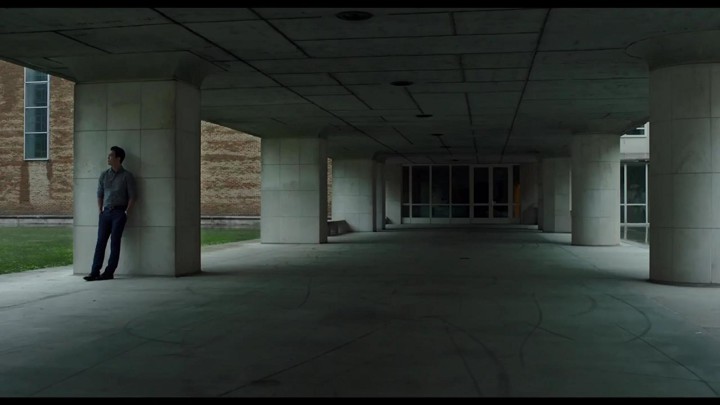

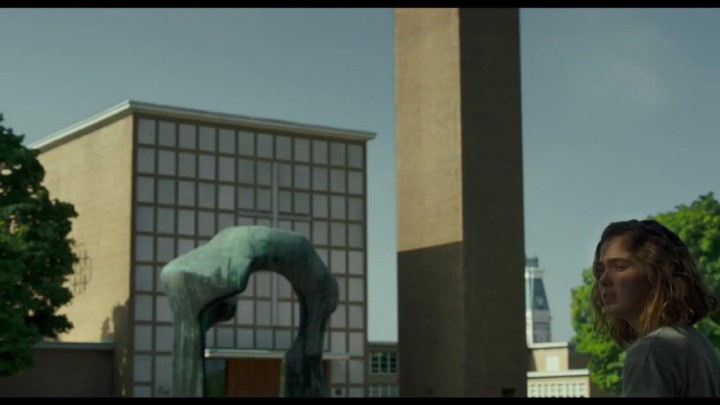
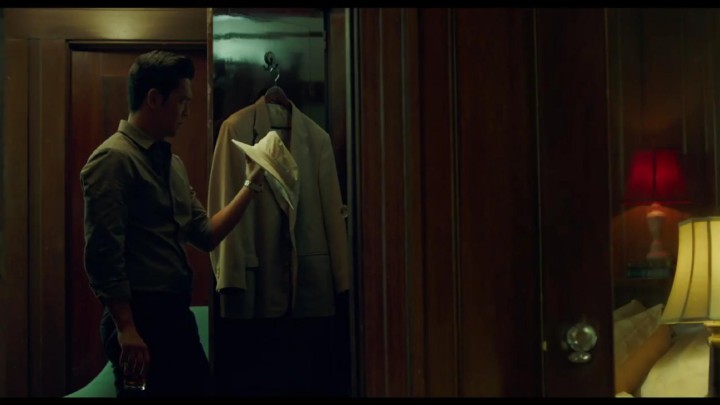

Yes, I agree. Saw this at The Cary Theater. Its pace wasn’t most of the audience’s cup of tea, but I thought the cinematography beautifully set off the characters’ stasis and yearning for change in their lives. And it built to a surprisingly emotional conclusion. Well worth catching in the theater, but sadly I don’t think it played in the Raleigh area except for a couple of nights at The Cary.